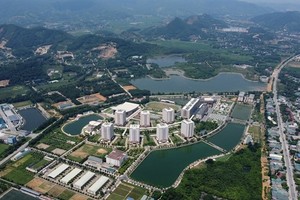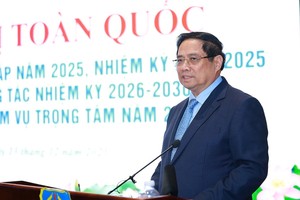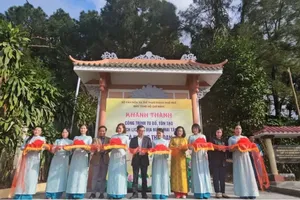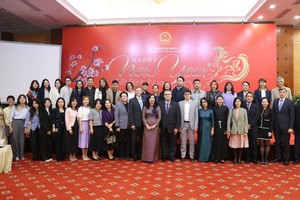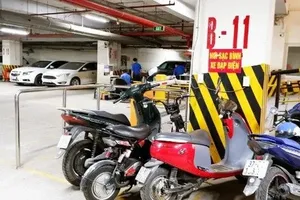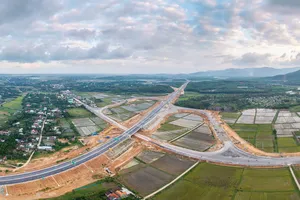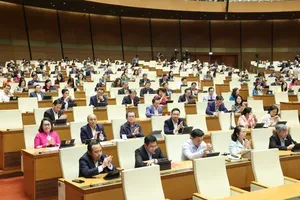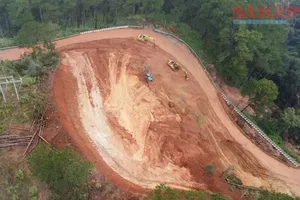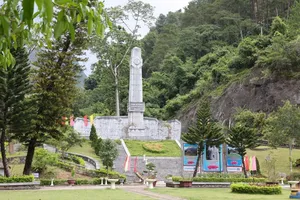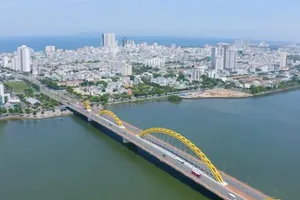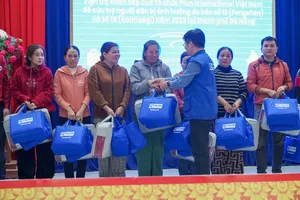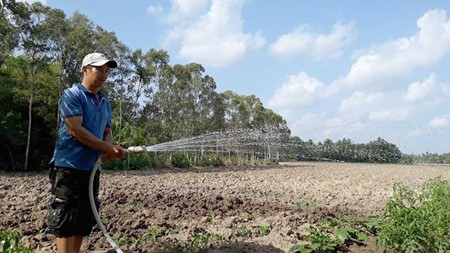
In the past few days, various channels and lakes in the desalination areas near Tac Thu – Song Doc, located in Ca Mau Province, have displayed signals of water depletion.
Mr. Nguyen Van Tien from Khanh Binh Commune of Tran Van Thoi District shared that the out-of-season rain happening at the beginning of the year somewhat filled water reservoirs in the place. However, he sadly added that the water level in these reservoirs was decreasing, and if the heat continued, it would not be long before these areas could not have enough water for plants. He is now trying his best to pump water into his fish ponds.
Similarly, farmer Nguyen Van Thuong, owner of a shrimp farm in Tan Duyet Commune of Dam Doi District, commented that such an intense heat makes it easy for his 45-day-old shrimps to suffer from diseases, costing him a large sum of money.
According to Mr. Nguyen Quoc Thong, Head of the Division of Agriculture and Rural Development in Dam Doi District, this fierce heat speeds up water evaporation, alters temperature and pH level in ponds, all of which lead to a shock among shrimps and a chance for diseases to develop quickly.
Mr. Tran Phu Hoa, Head of the Division of Forest Protection in An Giang Province, said that all the 17,000-ha area of the current forest in the province is put under Level 5 of Fire Danger – the extremely dangerous one. Since the dry season does not end until June, the task of fire prevention is his top priority at the moment.
A similar situation is happening in Dong Thap Province, where the water level keeps dropping. It is predicted to be even lower than the average data by 0.1 to 0.3 meters.
Saltwater intrusion is so fierce in various places, with the rating higher than this time last year by 3-4 per mille. The salinity in Vi Thanh City of Hau Giang Province is 10.3 per mille and 10 per mille, taken from Nuoc Trong River and Lau Channel respectively.
Mr. Tran Chi Hung, Director of the Hau Giang Province Department of Agriculture and Rural Development, shared that the salinity prevention sewers in his area are all closed now. His staff regularly monitor the salinity level in water in order to provide timely solutions, minimizing negative effects to crops and plants.
In Long An Province, local authorities are helping farmers to sow seeds scientifically to ensure the 3-week adaptation from the winter-spring crop season and the flexibility in water supplying. Any place that cannot provide sufficient water supply for rice crops is not advisable to sow seeds until the rainy season begins.
According to Mr. Nguyen Chi Thien, Deputy Director of the Long An Province Department of Agriculture and Rural Development, lack of water supply is the most urgent problem at present, especially in Tan Tru District, where the 400-ha dragon fruit field is in dire need of water.
The only solution now is to deliver timely warning and water usage guidance to local farmers, in hope that they will conserve this precious natural resource as much as possible, while speeding up the repair and maintenance of essential irrigation structures to reserve water.
Being the most seriously affected area by saltwater intrusion, Ben Tre Province is trying its utmost to cope with the grave situation of salinization. Ben Tre Water Supply Joint Stock Company is planning to better control the operation of salinity prevention sewers, along with pumping raw water into reservoirs sited in Son Dong Water Company as soon as the water level shows signals of rising. An Hiep Water Company will also try increase its productivity to reach 18,000m3 per day (a growth of 6,000m3 per day compared to the current performance).
The Southern Institute of Water Resources Research warns that local authorities should have plans to dredge canals, increase the water transport capability of canal systems, actively pump water into reservoirs and operate sewers to reserve freshwater when possible. These areas are also recommended to closely monitor salinity levels to adjust them, ensuring enough water for plants, crops, and usage. Any place that seriously lack freshwater should choose plants that can endure droughts and salinization.
